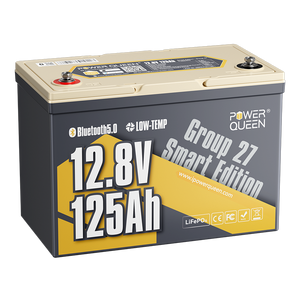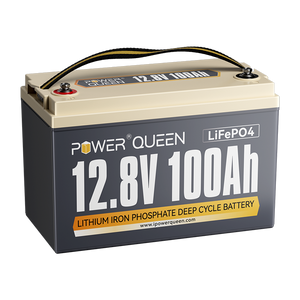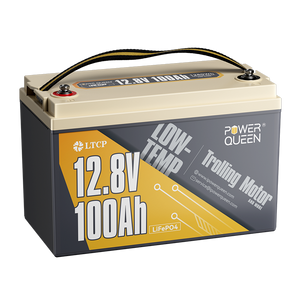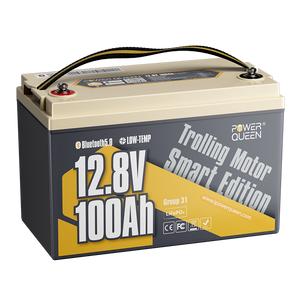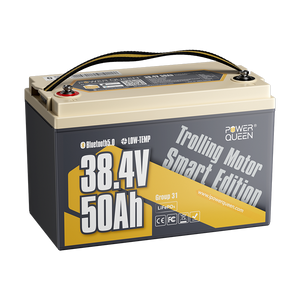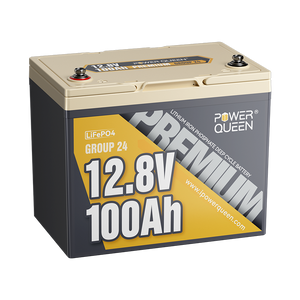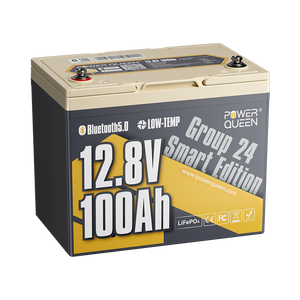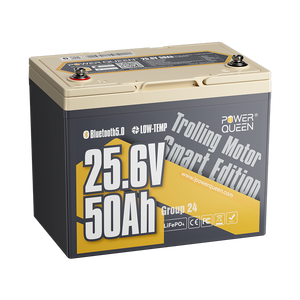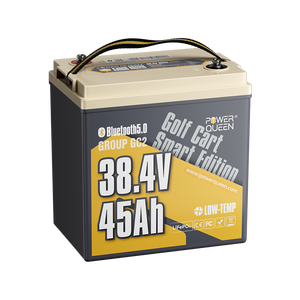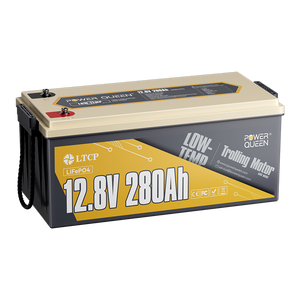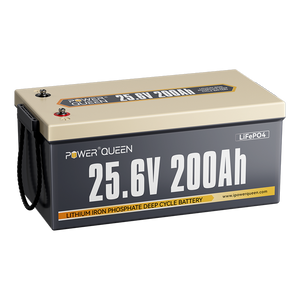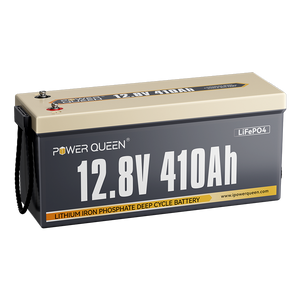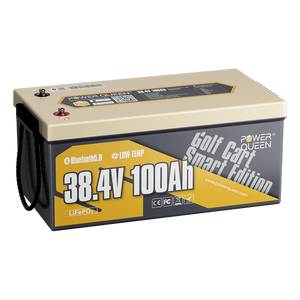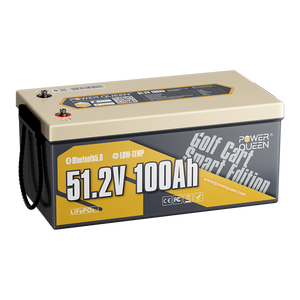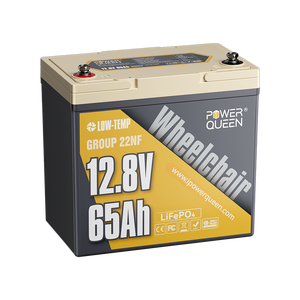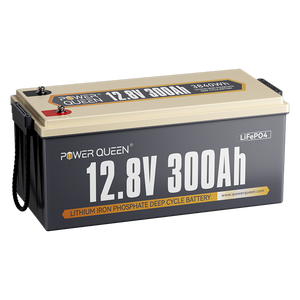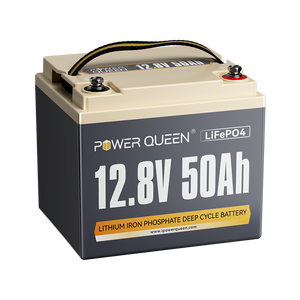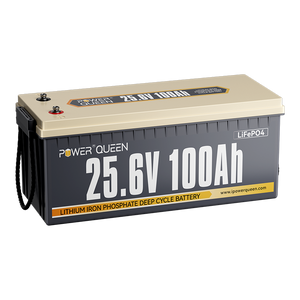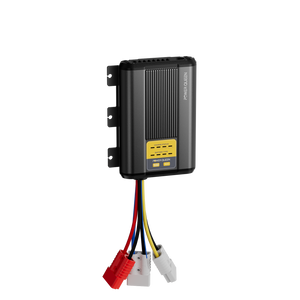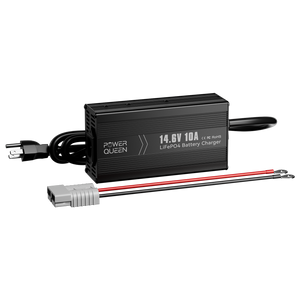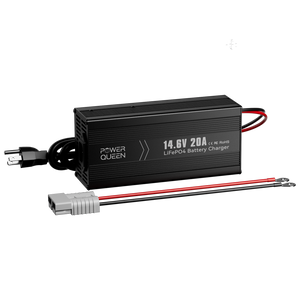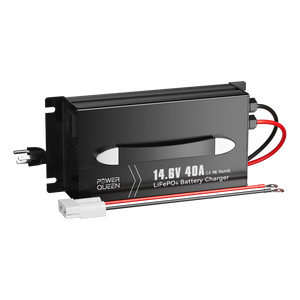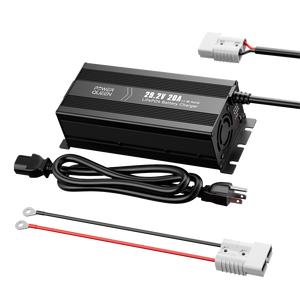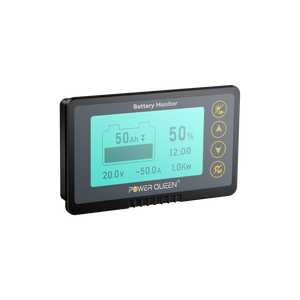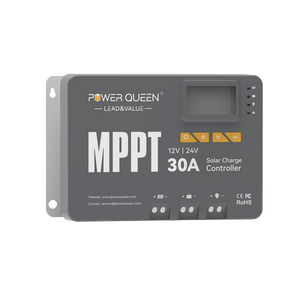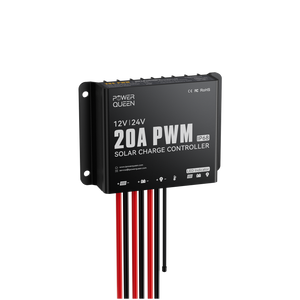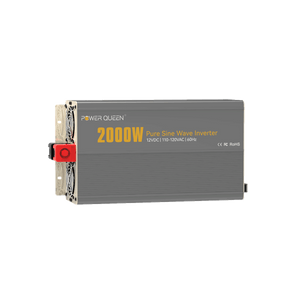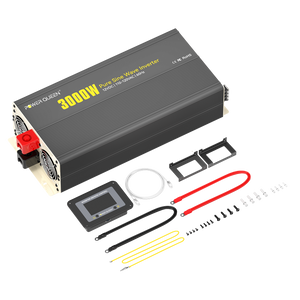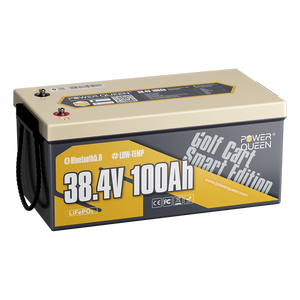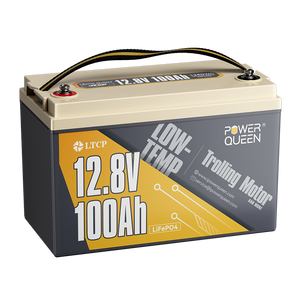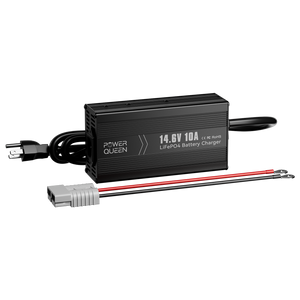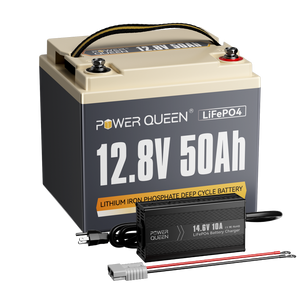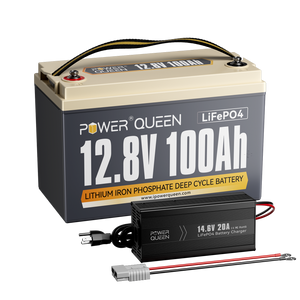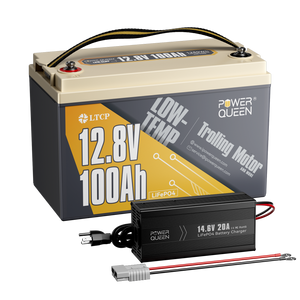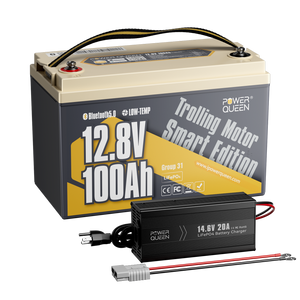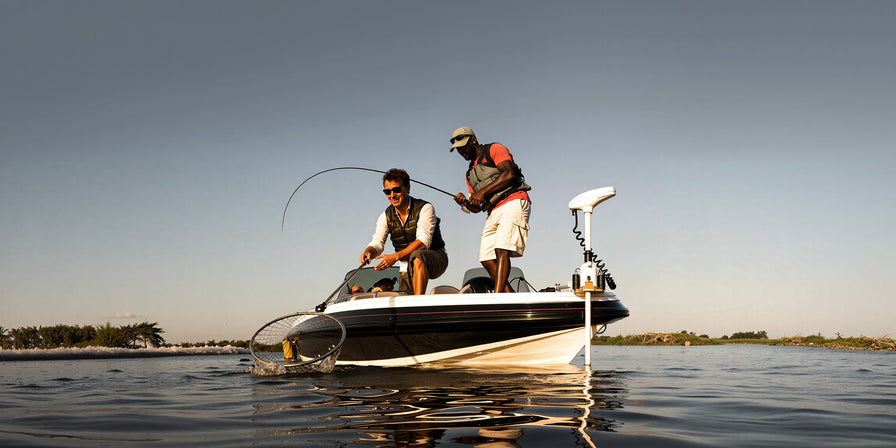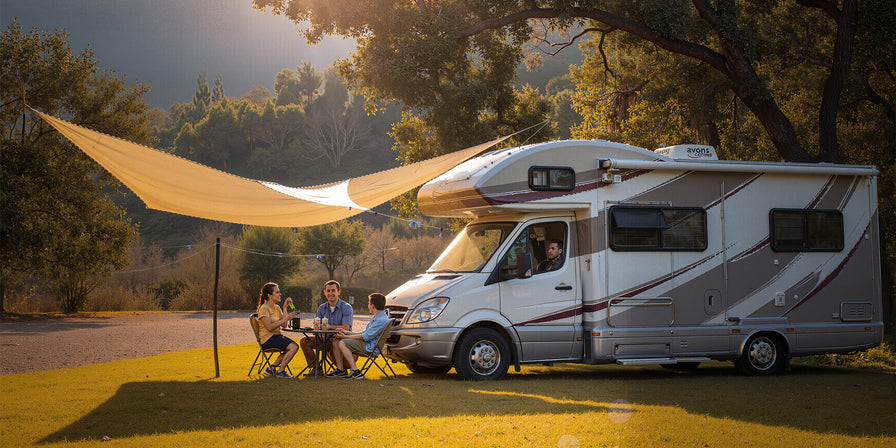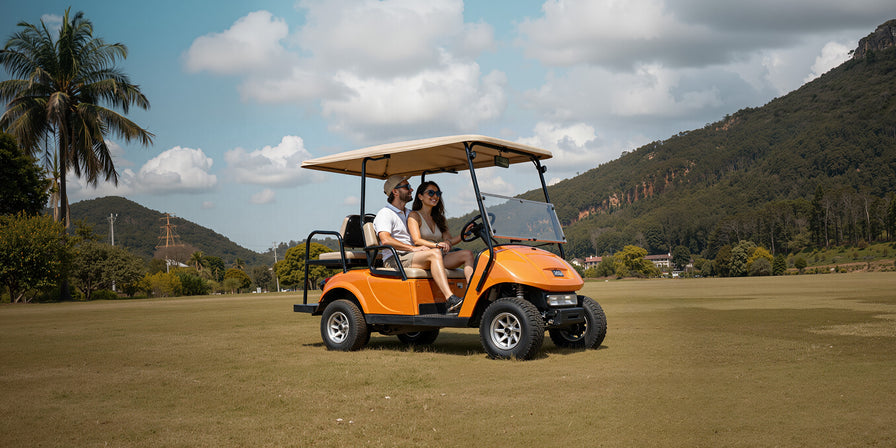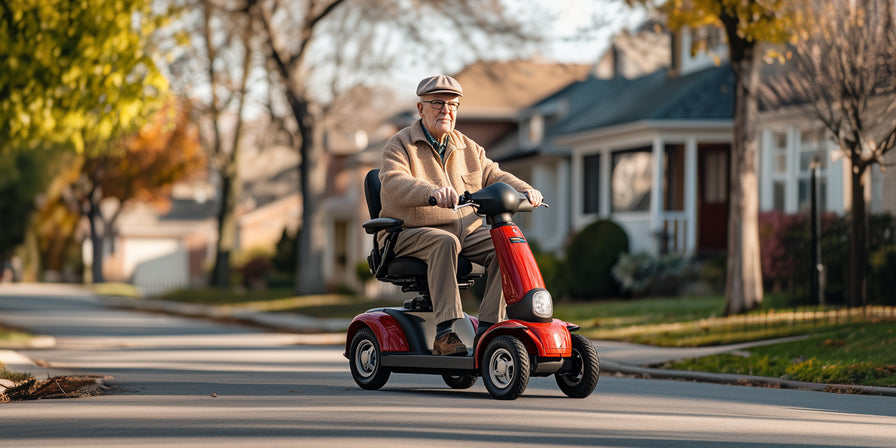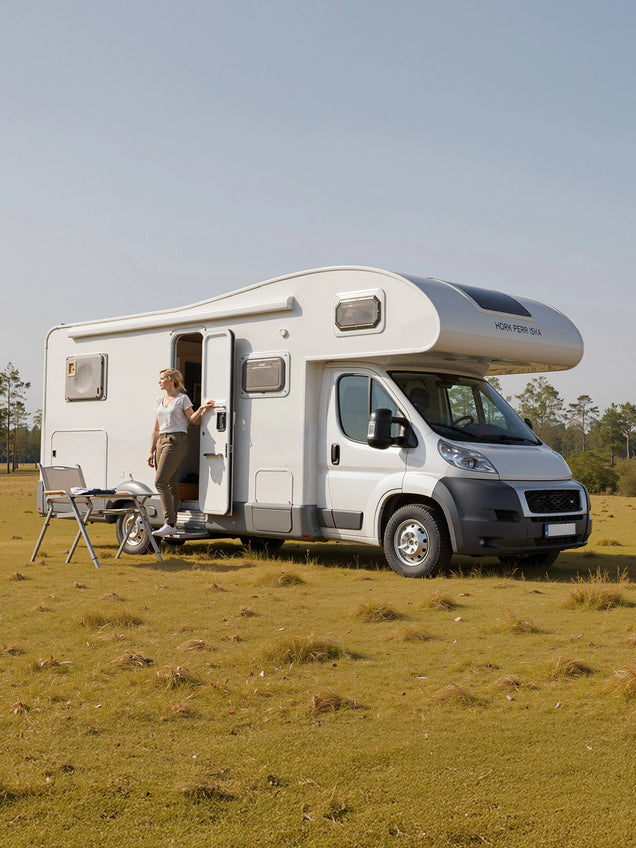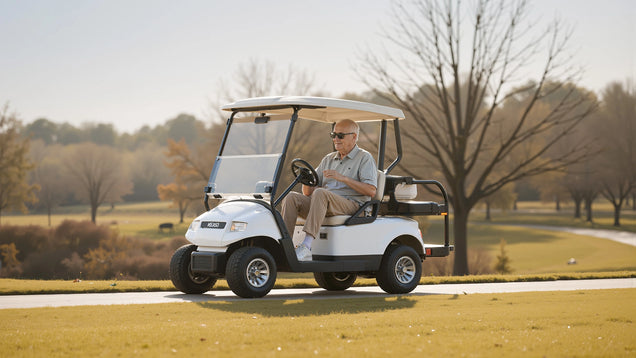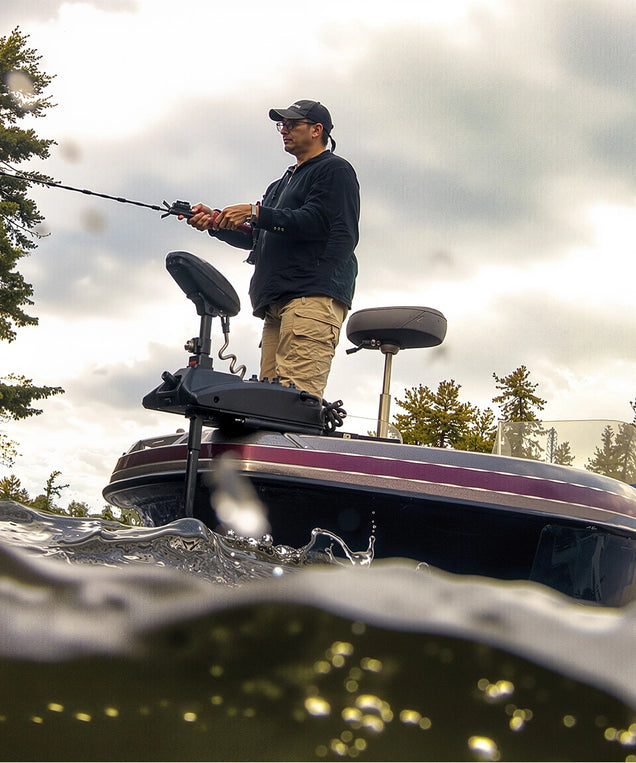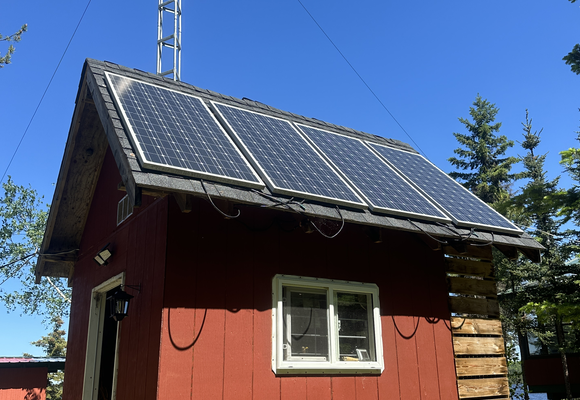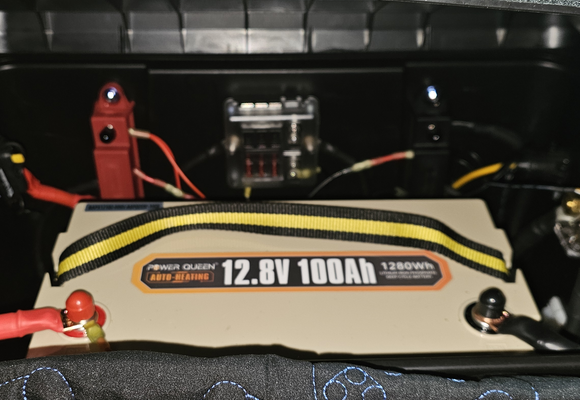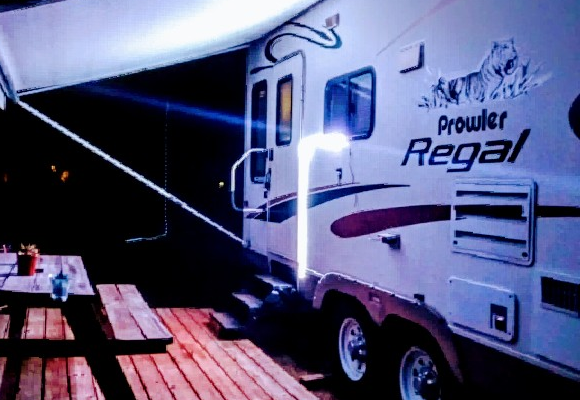Full Guide on Choosing A Lithium Battery For Trolling Motors--Why and How
Trolling motors play an essential role in fishing. They help to maneuver your boat silently and reduce spooking fish, ultimately increasing your chances of catching some fish. Additionally, the type of battery you use for your trolling motor can significantly impact the performance of your fishing experience. In recent years, lithium batteries have emerged as a popular choice among fishing enthusiasts due to their longer lifespan and lower maintenance needs compared with traditional batteries.
In this article, we will discuss the benefits of using lithium batteries for trolling motors.
Table of Content
5 Advantages of Lithium Batteries for Trolling Motors
Advantage 1: Lightweight and Portable
When selecting the perfect trolling motor battery, weight is a crucial factor to take into account. A heavy battery can hinder your boat's speed, maneuverability, and fuel efficiency, particularly in turbulent water conditions. As trolling motors operate at low speeds for extended periods, opting for a lightweight battery can reduce the boat's overall weight, improving its handling and responsiveness.
The weight of your battery also affects the boat's balance, which is critical to its safe operation in various water conditions. A heavy battery can cause the bow to dip, making steering challenging and unsafe in adverse weather. A lighter battery can ensure the boat's stability, making it easier to navigate through challenging conditions.
Lithium iron phosphate (LiFePO4) batteries offer a significant weight advantage over traditional gel cell and AGM batteries. Gel cell and AGM batteries often weigh between 60-70 lbs for a 12V 100Ah battery, while the same capacity LiFePO4 battery weights 26 to 32 pounds lbs. A Power Queen 12.8V 100Ah LiFePO4 Battery weights only 24.25 lbs.

The weight savings can enhance the boat's speed, maneuverability, and fuel efficiency, providing you with more time to fish and less time worrying about battery weight.
Advantage 2: Durability - LiFePO4 Offers Long-Term Cost Savings
Trolling motors demand a lot from batteries, especially during extended use in various water conditions and speeds. The lack of durability from a battery can cause premature failure, leaving you without power while on the water.
In contrast, a high-performing battery can keep up with repeated use without losing its capacity, ensuring reliable power whenever you need it. This durability guarantees that you save money in the long run by requiring less frequent battery replacements, which can be expensive and inconvenient.
It's also essential to consider a battery's anticipated lifespan. Durable batteries typically last longer than their less durable counterparts. For example, lithium iron phosphate (LiFePO4) batteries have 3-5 times longer lifespan than lead-acid batteries. Lead-acid batteries have a cycle life of 300-500, which means that they need to be replaced every 2-3 years. In contrast, you can use LiFePO4 batteries for over ten years, with a cycle life of 4,000-15,000 cycles.

Choosing a durable battery can help you avoid frequent expenses and hassle of replacing your battery, ensuring that your trolling motor maintains optimum performance on the water while saving you money in the long-term.
Advantage 3: High Energy Density - Improved Trolling Motor Performance
Compared to other battery types, Lithium iron phosphate (LiFePO4) batteries have a higher energy density. This means that more energy can be stored within a smaller size and weight compared to lead-acid batteries. While the typical energy density of lead-acid batteries ranges between 30-50 Wh/kg, that of LiFePO4 batteries is around 100-150 Wh/kg. This increased energy density allows LiFePO4 batteries to provide more power to the trolling motor for extended periods.
The higher energy density of LiFePO4 batteries also ensures a consistent voltage output, which is crucial for optimal performance of the trolling motor. This consistency allows the motor to operate at a steady speed, which provides for smooth and efficient water navigation.
Furthermore, LiFePO4 batteries can discharge at a higher rate than lead-acid batteries, providing up to 5C or more discharge rates compared to the 1C-2C rate of lead-acid batteries. This discharge rate implies that the battery can distribute more power to the motor when it's required, ensuring improved performance and longer run times on the water.
Advantage 4: Low Maintenance - Convenient for Fishing Enthusiasts
Proper maintenance is crucial for ensuring optimal performance and lifespan of the trolling motor battery, and accessibility for maintenance should be a consideration when choosing a battery.
The amount of maintenance required can determine your overall fishing experience as regular maintenance tasks like checking water levels, adding distilled water, and ensuring proper charging can be time-consuming and inconvenient, reducing your fishing time.
For example, lead-acid batteries require frequent maintenance, and neglecting these tasks can lead to reduced battery life or even battery failure, leaving you without power for your trolling motor.
In contrast, LiFePO4 batteries require much less maintenance than lead-acid batteries, earning them the title "maintenance-free." LiFePO4 batteries don't need frequent monitoring for water levels, and don't require any particular charging considerations to ensure their longevity. Opting for LiFePO4 batteries can save you time and effort required for maintenance, making fishing on the water smoother and more enjoyable.
Therefore, when selecting a trolling motor battery, battery maintenance is a pertinent consideration, and choosing a low-maintenance option like LiFePO4 can provide benefits such as time, effort, and overall performance on the water.

Advantage 5: Enhanced Safety and Eco-Friendliness
Trolling motor battery safety is crucial since overcharging and undercharging are significant safety hazards. Overcharging can cause overheating leading to battery rupture or explosion, whereas undercharging can damage the battery and affect its performance.
Another risk is the release of toxic gases when charging or using the battery. Hydrogen gas, which is highly flammable and can cause fires or explosions if not correctly ventilated, is released when charging or using lead-acid batteries. In contrast, LiFePO4 batteries don't release toxic gases, making them safer for enclosed areas like boats.
Advanced safety features that guarantee optimal battery safety include overcharge protection, thermal regulation, and short-circuit protection mechanisms. Additionally, it's essential to store and use your battery in a properly ventilated space, away from heat sources and flames.
Power Queen's LiFePO4 batteries have a built-in BMS (Battery Management System), ensuring protection against overcharge, over-discharge, over-current, short circuit, and high temperature, hence providing the best safety and reliability.

By selecting a battery with advanced safety features and following the appropriate storage and use guidelines, you can minimize risks that come with battery usage. This way, you can enjoy a safe and worry-free experience on the water with your trolling motor. Additionally, LiFePO4 batteries are environmentally friendly, eliminating pollution and conserving nature.
Factors to Consider When Choosing the Right Size LiFePO4 Battery for your Trolling Motor
Lithium iron phosphate (LiFePO4) batteries offer strong advantages for trolling motors, but choosing the right size is key to getting the performance you expect. First, you’ll want to understand the core sizing factors—motor voltage, Ah needs, runtime, and your boat’s space and weight limits.
If you often fish in cold weather, temperature becomes an extra consideration. Winter conditions affect battery performance, so selecting a LiFePO4 battery designed for low temperatures can make a noticeable difference on the water.
Core Sizing Factors for Selecting the Right LiFePO4 Battery
Voltage
The first thing to consider is the voltage required for your trolling motor. Most trolling motors operate on either a 12V or 24V system. Choose a LiFePO4 battery with a voltage that matches your trolling motor's requirements.
Amp-Hour (Ah) Capacity
The battery's amp-hour capacity determines how long your trolling motor will run on a single charge. To calculate the battery capacity you need, consider how long you want your trolling motor to run and at what speed. Keep in mind that higher speeds consume more power and drain the battery faster.
Here's a formula to help you calculate the battery capacity you need:
Battery capacity (Ah) = (Trolling motor draw in amps x hours of continuous use) x 1.5
For example, if your trolling motor draws 10 amps and you want to use it continuously for 4 hours, you would need a battery with a capacity of at least (10 x 4) x 1.5 = 60 Ah.
Physical Size and Weight
LiFePO4 batteries come in a range of sizes and shapes, so it's essential to choose one that fits in your boat and is easy to install and remove. Keep in mind that LiFePO4 batteries are also much lighter than traditional lead-acid batteries, so you may be able to choose a battery with a higher amp-hour capacity without adding too much weight to your boat.
Cold-Weather Considerations – Choosing a Lithium Battery for Winter Fishing
Fishing in freezing temperatures puts extra strain on your trolling motor battery. Standard LiFePO4 batteries can lose capacity and may not charge properly when the mercury drops below freezing. That’s where a heated LiFePO4 battery makes a real difference.
Our heated batteries feature a built-in heater that automatically warms the cells to a safe charging temperature, drawing only minimal power. Experience automatic heating below 41°F (5°C), ensuring peak performance in cold conditions. Variable heating durations tailored to specific temperature ranges optimize efficiency, ranging from 30 to 100 minutes. This ensures you have reliable runtime and consistent charging, even on the coldest mornings. With a heated battery, you can fish with confidence without waiting for the battery to warm naturally or worrying about reduced performance in winter conditions
| Use Case | Standard LiFePO4 | Heated LiFePO4 |
|---|---|---|
| Boat stored indoors or in a heated space | ✅ Works fine | ❌ Not needed |
| Exterior or exposed compartment in freezing weather | ⚠️ Limited performance | ✅ Reliable charging & runtime |
| Summer / warm-weather fishing | ✅ Ideal | ❌ Not needed |
| Year-round cold-weather fishing | ⚠️ May discharge; cannot charge below freezing | ✅ Maintains full performance in sub-freezing temps |
| High power draw in cold (long trolling sessions) | ⚠️ Voltage may drop; reduced runtime | ✅ Stable output and runtime |
💡 Related Blog: Do You Need Self-Heating Battery

Choosing The Right LiFePO4 Battery for Your Trolling Motor
Aiming to provide some clarity on choosing the right LiFePO4 battery for your trolling motor, there are a few factors that you must take into account. The size of the battery, measured in Ampere-hour (Ah), its voltage, and physical dimensions must all come together.
For motors with a thrust range of 30 to 55 pounds, a LiFePO4 battery with a capacity of 50-100 Ah should be sufficient. In this case, the Power Queen 12.8V 100Ah mini LiFePO4 Lithium Battery is highly recommended.
For motors with a thrust range of 55 to 80 pounds, a battery with a capacity of 100-150 Ah will be required. The Power Queen12.8V 200Ah LiFePO4 Lithium Battery is a great fit for this category.
If your motor is within the range of 80 to 100 pounds of thrust, you should go for a battery with a capacity of 150-200 Ah. In this case, the Power Queen 12.8V 300Ah LiFePO4 Lithium Battery is a suitable match.
Finally, if you possess a larger trolling motor with a thrust of 200 to 300 pounds, a LiFePO4 battery with a capacity of 200-300 Ah will be required to provide the sufficient power and runtime you need. In this scenario, Power Queen 12.8V 410Ah LiFePO4 Lithium Battery would be the best choice.
Conclusion
Lithium batteries offer an impressive list of advantages, including longer lifespan, improved battery performance, and a better power-to-weight ratio than traditional batteries. This makes them an excellent option for fishing enthusiasts looking to optimize their trolling motor experience. Purchasing a trolling motor with a lithium battery that matches your fishing needs and preferences is easy when you know what to look for. Follow the guidelines provided in this article, and you'll find the right lithium battery and trolling motor without any hassle, ultimately enhancing your fishing experience.
If you want to keep your battery performing at its best on the water, now’s the perfect time to upgrade—especially during Christmas Day, with limited-time savings of up to 60%!
🎄 Christmas Savings at Power Queen🎄
From Dec 15–25, enjoy holiday pricing across all Power Queen batteries.
1 battery · 5% off | 2 batteries · 6% off | 4 batteries · 8% off
